10 Scholars Expanding Perspectives on the Hispanic Experience
September 23, 2022
Share
Engaged citizens try to seek information and ideas from multiple sources and perspectives. In recognition of Hispanic Heritage Month, here are 10 scholars from the Citizens & Scholars network and beyond who are broadening perspectives by highlighting and examining the experiences of Hispanic populations in the United States. Many of these scholars and C&S Fellows are not only expanding our broader understandings through their research, teaching, and work, but also through commitments to making their work accessible and available to the wider public.
Magdalena L. Barrera
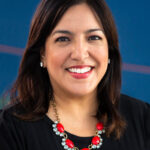 Vice Provost for Faculty Success, San José State University
Vice Provost for Faculty Success, San José State University
Career Enhancement Fellow 2011
Dr. Barrera is the Vice Provost for Faculty Success at San José State University where she supports faculty through each stage of their professional development. As a scholar, Dr. Barrera has two areas of research. The first explores how Mexican Americans are represented in early twentieth century American literature, music, photography, and government publications. The second centers on the experiences of historically underserved students and faculty in institutions of higher education.
- Recommended reading: The Latinx Guide to Graduate School (Duke University Press)
Alex E. Chávez
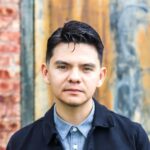 Nancy O’Neill Associate Professor of Anthropology, University of Notre Dame
Nancy O’Neill Associate Professor of Anthropology, University of Notre Dame
Mellon Emerging Faculty Leader 2020
As an artist-scholar-producer, Dr. Chávez explores articulations of Latinx sounds and aurality in relation to race, place-making, expressive culture, and the intimacies that bind lives across physical and cultural borders. A professional musician for two decades, he engages in music-making with the communities he studies, transforming these exchanges “into a unique understanding of how people cross various types of borders.”
- Recommended reading: Sounds of Crossing: Music, Migration, and the Aural Poetics of Huapango Arribeño (Duke University Press)
Danielle Pilar Clealand
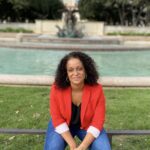 Associate professor of Mexican American and Latina/o studies, University of Texas at Austin
Associate professor of Mexican American and Latina/o studies, University of Texas at Austin
Dr. Clealand is a political scientist with a joint appointment in Mexican American and Latina/o studies and African and African diaspora studies at the University of Texas at Austin. Her research examines Black politics, group consciousness, Black public opinion, and racial inequality with a focus on the Spanish-speaking Caribbean and the United States using a mixed method, interdisciplinary approach. Dr. Clealand’s first book, The Power of Race in Cuba, won numerous awards and helped shape her current project, which aims to uncover history of Black Cubans in the U.S.
- Recommended reading: The Power of Race in Cuba: Racial Ideology and Black Consciousness During the Revolution (Oxford University Press)
Monica Muñoz Martinez
 Associate professor of history, University of Texas at Austin
Associate professor of history, University of Texas at Austin
Career Enhancement Fellow 2017
As an author and historian, Dr. Martinez tells the stories of racial injustices with a focus on topics like the history of racial violence, law enforcement at the U.S.-Mexico border, Latinx history, and restorative justice. Dr. Martinez’s current project, Mapping Violence, is building a digital archive to educate both scholars and citizens alike about ethnic and racially targeted violence in Texas in the early 20th century. Dr. Martinez was a 2021 recipient of a MacArthur Fellowship
- Recommended reading: The Injustice Never Leaves You: Anti-Mexican Violence in Texas (Harvard University Press)
Historians have a responsibility to the profession to contribute new findings and advance knowledge. But historians also have a responsibility to society more broadly to make sure that people have access to that knowledge. People have a right to learn truthful accounts of history in schools, museums, the news, and popular culture, even when those histories are troubling. This is especially important when lessons of the past can help inspire a more inclusive and equitable future. That is why I am committed to researching, writing, and sharing histories of the long struggles for justice in U.S. history.”

Sarah McNamara
 Assistant Professor of History, Texas A&M University
Assistant Professor of History, Texas A&M University
Mellon Emerging Faculty Leader 2020
Dr. McNamara has a joint appointment in history and Latina/o, Mexican American studies at Texas A&M. Her research focuses on Latinx, women and gender, immigration, and labor histories in the modern United States. In addition to her research and writing, Dr. McNamara also prioritizes making history accessible and available to the public. She led an oral history project in tandem with public events and exhibitions to showcase the experience of Cuban Americans who immigrated before 1959.
- Recommended reading: From Picket Lines to Picket Fences: Latinas and the Remaking of the Jim Crow South (dissertation with full book under contract, UNC Press)
Pablo Mitchell
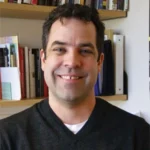 Professor of History and Comparative American Studies, Oberlin College
Professor of History and Comparative American Studies, Oberlin College
Dr. Mitchell explores the heritage and history of Mexicans, Puerto Ricans, Cubans, Dominicans, and Central and South Americans in the United States. He teaches courses on Latina/o History, US-Mexico Borderlands, History of American Sexualities, Mixed Heritage in US History, the American West, and Gilded Age America. Dr. Mitchell’s 2005 book, Coyote Nation: Sexuality, Race, and Conquest in Modernizing New Mexico, 1880-1920 (University of Chicago Press), was awarded the 2007 Ray Allen Billington Prize by the Organization of American Historians.
- Recommended reading: History of Latinos: Exploring Diverse Roots (Greenwood Press, 2014)
Cristina Mora
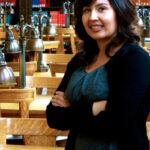 Associate Professor of Sociology, UC Berkeley
Associate Professor of Sociology, UC Berkeley
Dr. Mora holds a joint appointment in sociology and Chicano/Latino studies and is the Co-Director of the Institute of Governmental Studies at UC Berkeley. Her research focuses on questions of census racial classification, immigration, and racial politics in the United States and Europe. Her book, Making Hispanics, was published by the University of Chicago Press and provides the first historical account of the rise of the “Hispanic/Latino” panethnic category in the United States.
- Recommended reading: Making Hispanics: How Activists, Bureaucrats, and Media Constructed a New American (University of Chicago Press)
Explore Fellowship opportunities for Ph.D. candidates and faculty.
Barbara Sostaita
 Assistant Professor Latin American and Latino Studies, University of Illinois Chicago
Assistant Professor Latin American and Latino Studies, University of Illinois Chicago
Women’s Studies Fellow 2020
Dr. Sostaita is a scholar of religion and global migration. She grew up undocumented in the south, the daughter of a minister who taught her how religion informs and shapes migrant-led organizing. Her work considers how people on the move—including migrants, artists, and organizers—engage with the sacred to cross and transgress borders. As an assistant professor at the University of Illinois Chicago, she teaches courses on Latinx religions, transnational migration, and undocumented social movements.
- Recommended Reading: “’Water, Not Walls:’ Toward a Religious Study of Life that Defies Borders” (American Religion)
Héctor Tobar

Professor of English and Chicano/Latino Studies, University of California Irvine
Héctor Tobar is the author of five books, including three novels. As a professor and writer, Mr. Tobar’s work examines the evolving and interdependent relationship between Latin America and the United States. His forthcoming book, Our Migrant Souls: A Meditation on Race and the Meanings and Myths of Latino, is an “extended essay on the meanings and myths of ‘Latino’ or ‘Latinx’ identity in our times.”
- Recommended Reading: Deep Down Dark: The Untold Stories of Thirty-Three Men Buried in a Chilean Mine and the Miracle that Set Them Free (MCD/Farrar, Straus & Giroux)
Daisy Vargas
 Assistant professor of Religious Studies & Classics, University of Arizona
Assistant professor of Religious Studies & Classics, University of Arizona
Charlotte W. Newcombe Fellow 2017
Dr. Vargas specializes in Catholicism in the Americas, race, ethnicity, and religion in the United States, Latina/o/x religion, and material religion. Her current project traces the history of Mexican religion, race, and the law from the nineteenth century into the contemporary moment, positioning current legal debates about Mexican religion within a larger history of anti-Mexican and anti-Catholic attitudes in the United States.
- Recommended reading: “Latina/o/x Pilgrimage and Embodiment” (The Oxford Handbook of Latinx Christianities in the United States)
Looking to fund your scholarship? Read our guide for how to get funded.
Stay Engaged
Get More News
Join our mailing list to get more news like this to your mailbox.
Support Our Work
Help us invest in the talent, ideas, and networks that will develop young people as effective, lifelong citizens.
Ways to Support Us